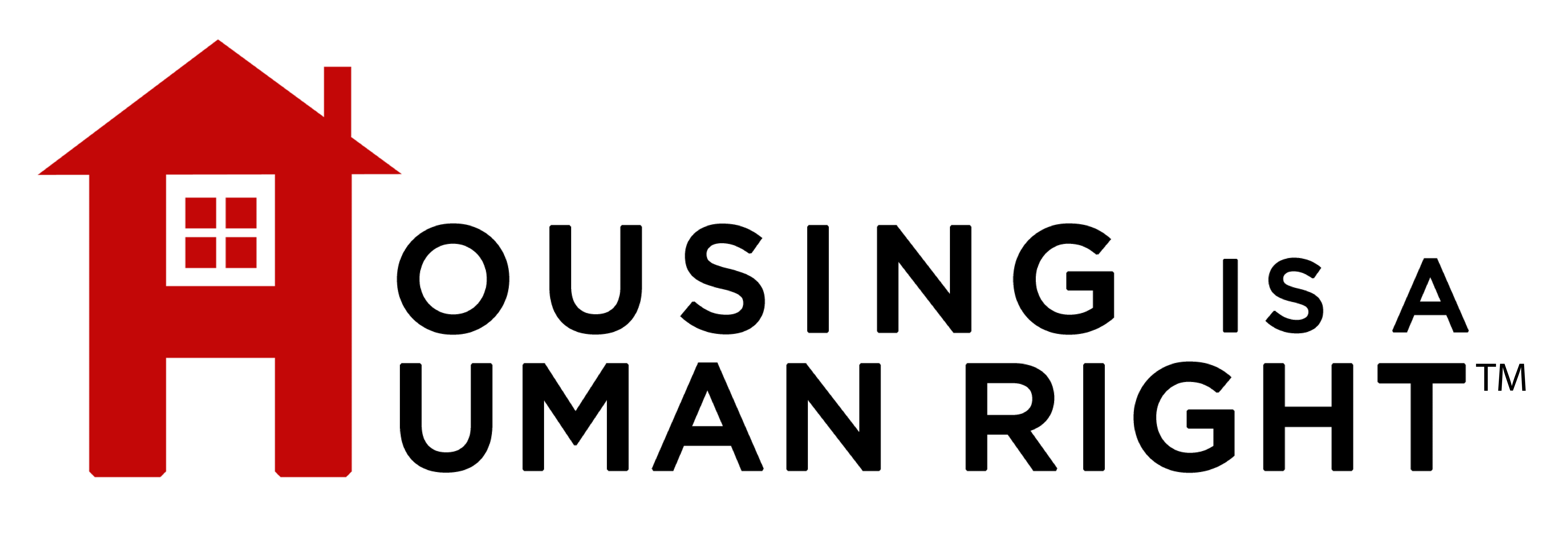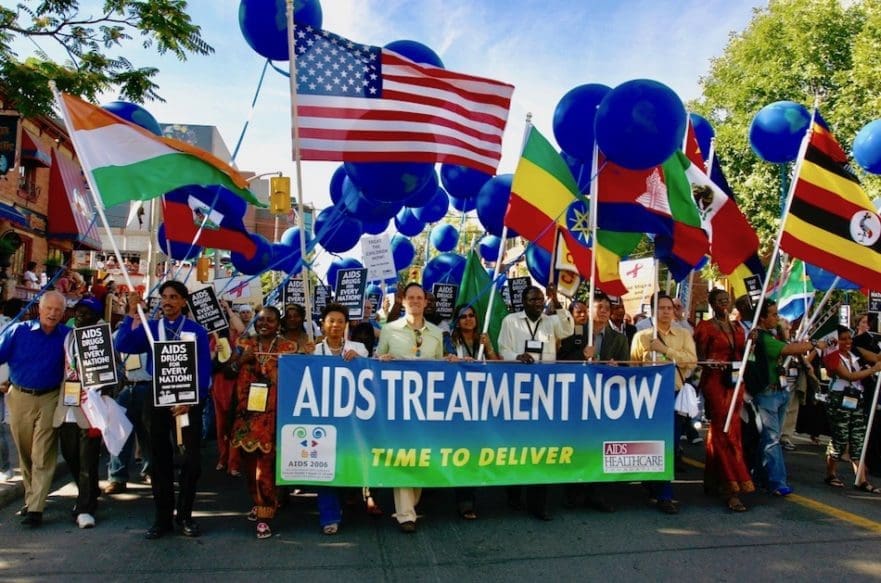For 30 years, AIDS Healthcare Foundation, the world’s largest HIV/AIDS medical-care provider, has fought for what’s right — even when it means engaging in difficult battles against corporate landlords, the pharmaceutical industry, and powerful politicians. A new documentary explains how AHF has always stayed true to its patient-centered mission.
In 1987, AIDS devastated L.A.’s LGBT community, taking the lives of men and women of all colors. Yet much of society, fearful and ill-informed, abandoned them. People living with HIV/AIDS were treated as lepers at hospitals, abandoned by family, and evicted from their apartments by landlords. Too often, they had nowhere to live.
In response, AIDS activists Michael Weinstein and Chris Brownlie co-founded AIDS Hospice Foundation. Their mission was to provide housing and medical services for terminally ill AIDS patients through hospice care. AHF patients, many of whom were lower-income, would pay nothing. (Later, the organization’s name was changed to AIDS Healthcare Foundation.)
AHF acquired a former nurses dormitory at the Barlow Respiratory Hospital in the Echo Park neighborhood of Los Angeles, less than a block away from Dodger Stadium. But it needed L.A. County government, which had been slow to respond to the AIDS crisis, to help provide funding. The powerful Los Angeles County Board of Supervisors were reluctant, but AHF persisted.
After months of tireless advocacy, AHF forced the supervisors into action, providing $2 million. For years to come, that kind of advocacy would be crucial for AHF’s effectiveness as a medical-care provider and to best serve its patients. AHF attained funding not only for its program, but for hospice care throughout the county.
In 1988, the organization opened the 25-bed Chris Brownlie Hospice, where patients lived out their final weeks in a loving home. A sign on the front door read: “Gay, Lesbian, Bisexual, Straight, Women, Men, Black, Brown, White, Yellow, Red, Young, and Old. All Are Welcome Here.”
That inspiring chapter of AHF’s history, among many others, is featured in Keeping the Promise: AHF 30 Years, a documentary narrated by Oscar-winning actress Meryl Streep.
In 1992, AHF opened the Carl Bean Hospice in South Los Angeles, where African Americans and Latinos living with HIV/AIDS were appallingly underserved by local government. Again, AHF provided essential housing and medical services. Working in lower-income neighborhoods and countries around the globe, AHF has long been committed to helping those most in need.
Dr. Cornel West, the noted intellectual and author of Race Matters, said about the organization: “AHF is a powerful force for good in a society that often overlooks the vulnerable.”
In 2017, AHF, now a global leader in the fight against HIV/AIDS and other public health issues, returned its roots as a housing provider.
The organization purchased the Madison Hotel, a single room occupancy (SRO) building in Downtown Los Angeles. It was an urgent response to L.A.’s housing affordability and homeless crises, which sky-high rents and L.A. City Hall’s land-use policies helped to fuel. Without stable, affordable housing, AHF patients, and the public, struggle to maintain good health. The hotel will be refurbished, and rental units will be offered at a low rate, approximately $400 per month.
AHF plans to expand its affordable housing program, known as Healthy Housing Foundation, throughout California — Housing Is A Human Right is the housing advocacy division of AHF. Just like in 1987, the organization believes that its patients and the public are facing an emergency that needs immediate attention.
For addressing the housing affordability crisis, AHF carries out a multi-pronged, community-based approach known as the “3 Ps”:
- Protect tenants through rent control and other tenant rights;
- Preserve existing affordable housing, not demolish it to make way for luxury housing;
- Produce new affordable and homeless housing through adaptive reuse and cost-effective new construction.
To learn more about AHF and its life-saving work that spans more than 30 years, read the well-regarded book Righteous Rebels: AIDS Healthcare Foundation’s Crusade to Change the World and visit the AHF Historical Timeline.

